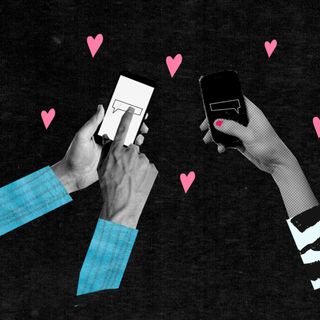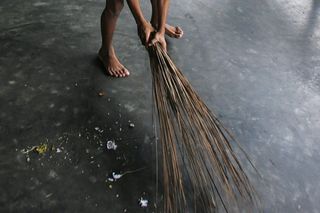
The Coronavirus Pandemic Holds a Mirror to Our Culture’s Shameless Classism
While we rage against the system to protect us, how can we continue to ignore the plight of those who work for us?

Luxury quarantine is now a curious side effect of the Covid19 pandemic: The Delhi government is allowing people to use hotels near the airport as paid quarantine centers to socially distance themselves in peace, perhaps with room service? “Those who need to use these hotels will need to pay. These hotels in Delhi can be booked for the mandatory ’14-day quarantine’ for travelers reaching Delhi from abroad. The bills will have to be paid by the guests who want luxurious isolation during the quarantine,” Delhi Chief Minister Arvind Kejriwal told The Economic Times. The bill? Around Rs. 3100 a day.
On the opposite of the spectrum, bare minimum social distancing is proving a lot harder to accomplish than once thought. In an essay, physicians Vijay Gopichandran, Sudharshini Subramaniam, and Vinod H Krishnamoorthy dismiss social distancing, or the practice of maintaining distance to avoid the spread of contagion, as a joke in India. People who live with multiple others in single rooms cannot realistically consider locking themselves A 50-year-old woman, who showed symptoms similar to Covid19 and lived with multiple people within a single hut, dismissed isolation, saying, “Three of us are women and it is not safe for women to sleep outside the house. There is also the threat of scorpions and snakes outside.”
Our culture was never an equitable one; we’ve always either discriminated against or ill-treated people on the basis of various parameters. However, pandemics are uniquely efficient when it comes to laying bare the class divides our society thrives off. Sure, the Covid19 virus doesn’t discriminate by virtue of who’s rich and poor, but failing healthcare systems, governmental non-action, and our inability to view even caring for our communities beyond immediate circles do. Low-income groups, including people whose work involves cooking, cleaning, grooming, delivering food, groceries, and more are most vulnerable to Covid19.
Related on The Swaddle:
How Likely Are You to Get Coronavirus? Very.
The manifestation of our blissful disregard for these individuals is two-fold. We choose to protect ourselves, Instagramming sanitizers and not touching our faces, while expecting our cooking/cleaning/driving staff and deliveries to come through seamlessly, regardless of the fear or concern they may feel. A., 36, who works as a home cleaner, did not want to go work in a particular apartment complex because rumors of people contracting the virus within the complex made her uncomfortable. However, her employers kept pushing her to come, even after the apartment complex eventually disallowed entry of the staff; they’d flout rules to get her in, they told her. N., who is in her late 40s and also works as a home cleaner, wanted to stay home when rumors floated about in her neighborhood that Covid19 patients would be detained or beaten — but her employers refused to give her paid leave. She stayed home after the apartment complex she worked at also disallowed entry, but lost money.
Or, we choose to demonize those who work in our homes, cloaking our disgust at their living conditions, appearance, and perceived uncleanliness, with faux concern.The latter isn’t voicing the very real worry of contracting a virus, but rather dehumanizing the help as mere sources of infection — “I’m making my maid shower as soon as she enters the house,” or “I don’t think my maid is washing her hands properly.” Perhaps, we all could benefit from a reminder that we’re talking about real people.
Plus, the entitlement we feel for seamless services is also a bit rich, considering our own relentless outrage at being made to step out of our homes to work. Even though we demand that our employers let us work from home in the name of self and community protection, we still demand that our house help come and work every day — smells a lot like hypocrisy, right?
If pandemics are capable of blatantly magnifying class divides, no time better than now to take advantage of realizing that this isn’t survival of ‘people like us’, but the survival of as many people as possible regardless of their class position. Social distancing while having a source of income can’t just be for us and other people like us, it has to include all employees — whether they’re working for a large corporation or within someone’s home. Its time we treat those we employ with dignity — offer them paid leave, for time to take stock and care for themselves without worry, just like we’d want for ourselves.
Aditi Murti is a culture writer at The Swaddle. Previously, she worked as a freelance journalist focused on gender and cities. Find her on social media @aditimurti.
Related


Woe Is Me! “I Love My Boyfriend, but I Hate Living With Him”
